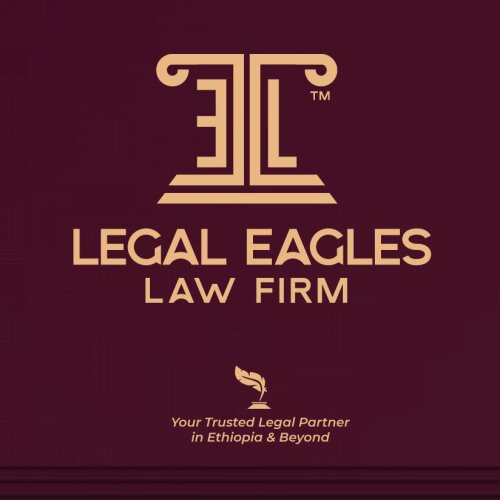Best Energy Regulatory Law Lawyers in Ethiopia
Share your needs with us, get contacted by law firms.
Free. Takes 2 min.
Or refine your search by selecting a city:
List of the best lawyers in Ethiopia
About Energy Regulatory Law in Ethiopia
Energy Regulatory Law in Ethiopia governs the production, generation, transmission, distribution, and consumption of energy resources within the country. This includes electricity, renewable energy (such as wind, solar, and hydroelectric power), fossil fuels, and related infrastructure. The framework is primarily overseen by the Ethiopian Energy Authority (EEA), which is responsible for licensing, regulatory compliance, tariff setting, safety standards, and promoting sustainable energy solutions. The government has prioritized expanding energy access and encouraging private sector investment in the energy sector, particularly in renewable energy, in line with its national development plans.
Why You May Need a Lawyer
Navigating Energy Regulatory Law in Ethiopia can be complex due to evolving policies, technical requirements, and the involvement of multiple regulatory bodies. Individuals, companies, and investors often seek legal advice in several common situations, such as:
- Securing permits and licenses for energy projects
- Negotiating power purchase agreements or other contracts
- Understanding tariffs, taxes, and regulatory fees
- Addressing environmental compliance and social impact assessments
- Resolving disputes with government authorities, energy providers, or contractors
- Ensuring compliance with local regulations when investing in renewable energy projects
- Handling land acquisition and right-of-way issues for energy infrastructure
- Advising on cross-border energy trade and joint ventures
- Challenging regulatory decisions or administrative actions
A qualified lawyer can help interpret laws, mediate disputes, ensure all procedural requirements are met, and protect your interests throughout complex transactions.
Local Laws Overview
Energy Regulation in Ethiopia is based on both statutory laws and regulatory directives. Key legislation and regulatory points include:
- Proclamation No. 810/2013 (Energy Proclamation): Establishes the legal foundation for regulation, licensing, and operation of energy activities.
- Ethiopian Energy Authority (EEA): The main regulator responsible for issuing licenses, enforcing standards, and supervising sector activities.
- Electricity Proclamation No. 86/1997: Lays the groundwork for the generation, transmission, distribution, and sales of electric power.
- Regulations for Independent Power Producers (IPPs): These regulations facilitate private sector involvement, including requirements for securing generation licenses and negotiating project agreements with public utilities like Ethiopian Electric Power (EEP) and Ethiopian Electric Utility (EEU).
- Environmental and Social Impact: Regulations require detailed environmental and social impact assessments to ensure sustainable development of energy projects.
- Tariff Regulation: The EEA approves tariffs for energy services, focusing on fair, cost-reflective pricing and service quality.
- Import and Export Controls: Specific rules apply to the import of energy technology and equipment, as well as the cross-border trade of electricity with neighboring countries.
Awareness of these local laws, as well as any regional or municipal requirements, is essential for compliance and successful project development.
Frequently Asked Questions
What is the Ethiopian Energy Authority and what does it do?
The Ethiopian Energy Authority (EEA) is the government agency responsible for regulating the energy sector. It issues licenses, enforces compliance, sets tariffs, monitors the performance of energy companies, and ensures the sector operates safely and effectively.
Who needs to obtain an energy license in Ethiopia?
Any individual or company involved in the generation, transmission, distribution, import, export, or sale of energy must obtain the relevant license from the EEA. This also applies to independent power producers and renewable energy developers.
How are energy tariffs set in Ethiopia?
Tariffs for electricity and other energy services are determined and regularly reviewed by the EEA. The authority considers investment costs, operation and maintenance expenses, and the need for fair pricing to both consumers and investors.
Is private sector investment allowed in the Ethiopian energy sector?
Yes, the government encourages private sector participation, especially in renewable energy. There are special regulations for independent power producers, and investors can enter into power purchase agreements with public utility companies.
What is required for environmental compliance?
All energy projects in Ethiopia must undergo an Environmental Impact Assessment (EIA) and receive approval from the appropriate regulatory body. The assessment examines potential environmental and social impacts and outlines measures to mitigate negative effects.
Can foreign investors own energy projects in Ethiopia?
Foreign investment is permitted, especially in renewable energy projects. However, investors must comply with all local laws, secure the necessary permits, and collaborate with relevant government agencies.
What legal challenges are common in energy projects?
Common legal challenges include delays in obtaining permits, land acquisition disputes, regulatory compliance issues, changes to tariffs or tax structures, and contract enforcement problems.
How can I resolve a dispute related to energy regulation?
Disputes may be resolved through negotiation, mediation, or legal action in the relevant Ethiopian courts or regulatory boards. Legal counsel can recommend the best path based on the specific situation.
Is there a process for appealing regulatory decisions?
Yes, regulatory decisions by the EEA or other government bodies can be appealed through administrative review processes or, if necessary, through the courts.
What should I consider before starting an energy project?
It is important to understand all regulatory requirements, secure the necessary permits, assess environmental impacts, clarify land rights, and seek legal counsel to guide you through contracts and compliance issues.
Additional Resources
For those seeking additional information or assistance, the following resources and organizations are valuable:
- Ethiopian Energy Authority (EEA): Main regulatory agency for the energy sector. Their offices provide guidance on licensing and compliance.
- Ministry of Water and Energy: Oversees overall energy policy and development strategies.
- Environmental Protection Authority: Handles environmental impact assessments and approvals for energy projects.
- Ethiopian Electric Power (EEP) and Ethiopian Electric Utility (EEU): Key government utilities for power generation and distribution.
- Chamber of Commerce and business associations: Offer support and networking for energy sector investors.
- Local and international law firms specializing in energy and infrastructure projects.
Next Steps
If you need legal advice or support regarding Energy Regulatory Law in Ethiopia:
- Begin by gathering any relevant documents and information about your energy project or legal issue.
- Contact the Ethiopian Energy Authority or the Ministry of Water and Energy for initial guidance on regulatory requirements.
- Consult a qualified Ethiopian lawyer who specializes in energy law and regulatory compliance to review your case and explain your legal options.
- Prepare specific questions to discuss with your lawyer, such as licensing processes, project structuring, and compliance issues.
- Keep a detailed record of all communications and comply with all procedural steps outlined by any government agency or regulatory body involved.
Taking these steps can help you avoid unnecessary delays, ensure regulatory compliance, and protect your interests as you navigate the complexities of Ethiopia's energy regulatory environment.
Lawzana helps you find the best lawyers and law firms in Ethiopia through a curated and pre-screened list of qualified legal professionals. Our platform offers rankings and detailed profiles of attorneys and law firms, allowing you to compare based on practice areas, including Energy Regulatory Law, experience, and client feedback.
Each profile includes a description of the firm's areas of practice, client reviews, team members and partners, year of establishment, spoken languages, office locations, contact information, social media presence, and any published articles or resources. Most firms on our platform speak English and are experienced in both local and international legal matters.
Get a quote from top-rated law firms in Ethiopia — quickly, securely, and without unnecessary hassle.
Disclaimer:
The information provided on this page is for general informational purposes only and does not constitute legal advice. While we strive to ensure the accuracy and relevance of the content, legal information may change over time, and interpretations of the law can vary. You should always consult with a qualified legal professional for advice specific to your situation.
We disclaim all liability for actions taken or not taken based on the content of this page. If you believe any information is incorrect or outdated, please contact us, and we will review and update it where appropriate.
Browse energy regulatory law law firms by city in Ethiopia
Refine your search by selecting a city.

















